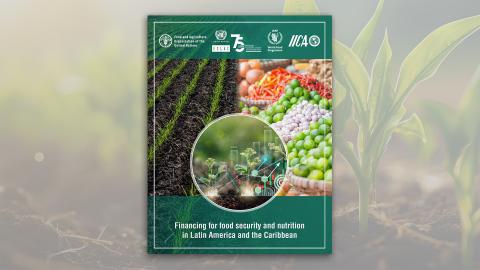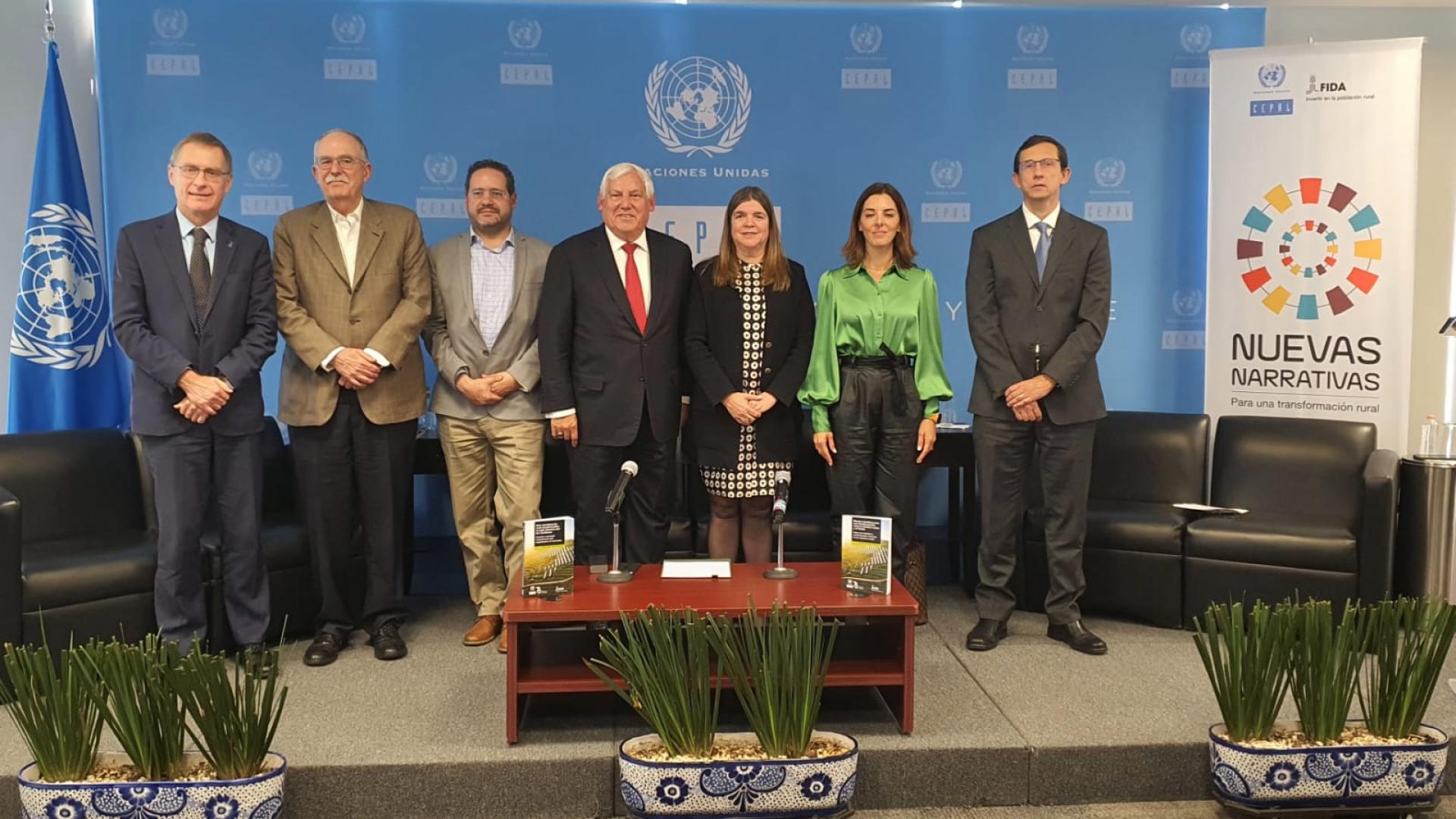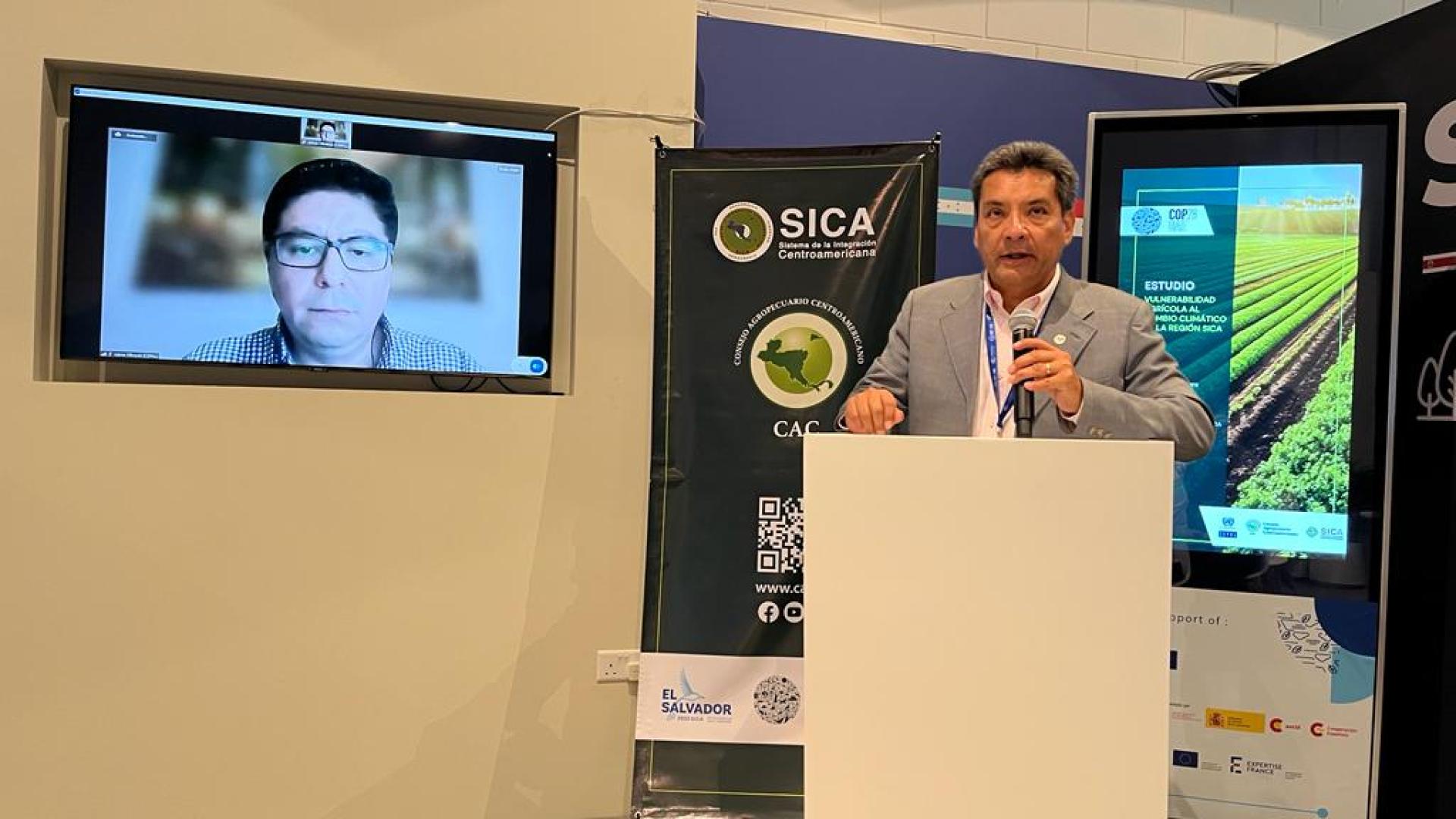Press Release
By the end of the century, climate change could prompt a decline in the production of corn, beans and rice in Central America-key to its people's food security-of 35 %, 43 % and 50 %, respectively, according to a recent study by the Economic Commission for Latin America and the Caribbean (ECLAC).
The report, entitled Potential Impacts of Climate Change on Basic Grains in Central America (only available in Spanish) and published by ECLAC's Sub-regional headquarters in Mexico, calculates this on the basis of two scenarios projected by the Intergovernmental Panel on Climate Change (IPCC), identified as A2 (increasing greenhouse gas emissions and global inaction) and B2 (trajectory of smaller emissions increase).
"In the A2 scenario, by the end of the 21st century, regional yields for corn, beans and rice would drop an estimated 35 %, 43 % and 50 %, respectively, compared with declines of 17 %, 19 % and 30 % in the B2 scenario; this is why it is so important to keep insisting on global efforts to reduce emissions", the document states.
In Central America, most of this production (especially of corn and beans) remains in the hands of small farmers, many of whom live in poverty and have limited access to social and economic services.
Nonetheless, they play an important role in maintaining agro-biodiversity and preserving production practices that are relatively sustainable and adapted to local conditions. This means they are key actors in the response to climate change, but at the same time they are very vulnerable to its impact.
For this reason, adaptive strategies that are inclusive and sustainable for the basic grains sector must be urgently adopted, combining the reduction of poverty and vulnerability with adaptation to climate change and a transition toward more sustainable and low-carbon economies. In that sense, the region is implementing very important adjustment and mitigation measures.
Conscious of this situation, the Presidents of the Central American Integration System (called SICA from its Spanish acronym) agreed in May 2008 to a set of mandates for national and regional institutions in response to climate change.
In that framework, the Central American Commission for Environment and Development (CCAD), the Council of Ministers of Finance of Central America, Panama and the Dominican Republic (COSEFIN), the Secretariat for Central American Economic Integration (SIECA) and ECLAC undertook the initiative "Economics of Climate Change in Central America" (ECCCA).
The goal of this project is to analyze and make known the region's vulnerability and the potential impact of climate change to influence decision makers and support the creation of inclusive and sustainable adaptation measures, to transition to low-carbon economies.



